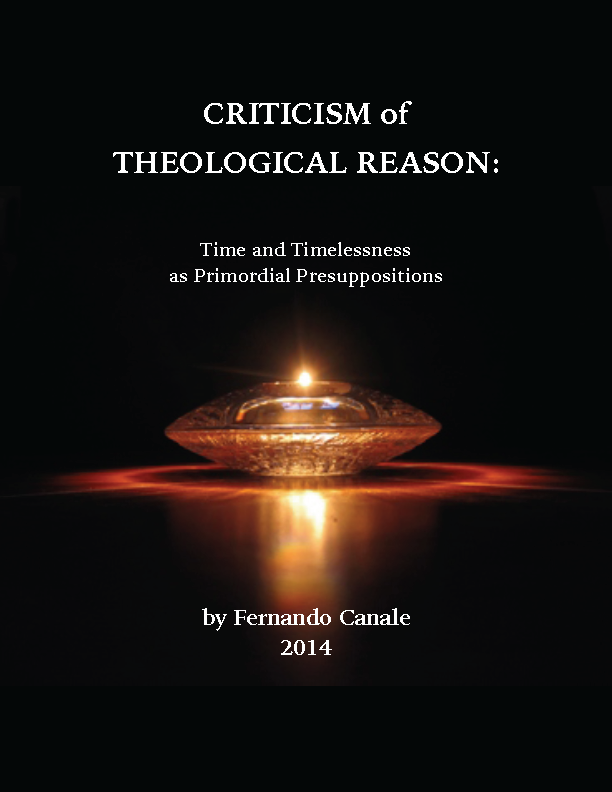- Store
- >
- English store
- >
- Books
- >
- Criticism of Theological Reason: Time and Timelessness as Primordial Presuppositions by Fernando Canale
Criticism of Theological Reason: Time and Timelessness as Primordial Presuppositions by Fernando Canale
SKU:
$9.99
$9.99
Unavailable
per item
Digital product, 1 PDF book, 468 pages.
The author describes the way in which theological discourse is conceived and proposes a biblical interpretation of the functioning of theological reason.
Table of Contents
INTRODUCTION
1 THE ONTO-THEO-LOGICAL STRUCTURE OF REASON
An Introductory Description of the Onto-Theo-Logical Structure of Reason
The Ontological Framework: "Ontos"
The Epistemological Framework: “Logos”
The System: "Theos"
The Hypothetical Character of Reason's Structure: Presuppositions
The Dimensionality of Reason's Structure: the Primordial Presupposition
Dimensionality of the Onto-Theo-Logical Structure of Reason
Classical Dimensionality: Timelessness
Primordial Presupposition: Parmenides
Epistemological Framework
The "Forgotten" Dimensionality: Time
Primordial Presupposition: Heidegger
Epistemological Framework
Temporal Objectivity
Temporal System
Summary and Conclusion
2. THE ONTO-THEO-LOGICAL STRUCTURE OF REASON IN THEOLOGY
Classical Reason
Ontological Framework: Timelessness
Ontos
Theos
Epistemological Framework: Timelessness
Lumen rationis
Lumen prophetiae
Lumen fidei
Summary and Partial Conclusion
Scientific Reason
Ontological Framework
Theos: Timelessness
Man: Potential Timelessness 229
Epistemological Framework
Natural Reason
Theological Reason
Summary and Partial Conclusion
Conclusion
3. THE THEO-ONTO-LOGICAL STRUCTURE OF REASON IN SACRED SCRIPTURE
Methodological Introduction
The locus classicus of Biblical Ontology
Phenomenological Exegesis
The Biblical Expression of Being: Exodus 3:14, 15
Theological Interpretation
Exod 3:14, 15 before Thomas Aquinas
Exod 3:14, 15 according to Thomas Aquinas
Exod 3:14, 15 from Thomas Aquinas until today
Summary and Partial Conclusion
Phenomenological Analysis
The context
Moses's question
The interrogative pronouns "ma" and "mi."
The idea of "name."
Setting Moses's question in missionary context.
Israel and Moses's question.
The Meaning.
God's answer
An open ontological structure
Summary and Partial Conclusion
The Biblical Interpretation of Being: Temporality
Ontological Framework: Being and Appearance
Epistemological Framework: Being and Logos
Knowing "Being itself"
The temporal dimensionality of Biblical logos
Conclusion
CONCLUSION
The author describes the way in which theological discourse is conceived and proposes a biblical interpretation of the functioning of theological reason.
Table of Contents
INTRODUCTION
1 THE ONTO-THEO-LOGICAL STRUCTURE OF REASON
An Introductory Description of the Onto-Theo-Logical Structure of Reason
The Ontological Framework: "Ontos"
The Epistemological Framework: “Logos”
The System: "Theos"
The Hypothetical Character of Reason's Structure: Presuppositions
The Dimensionality of Reason's Structure: the Primordial Presupposition
Dimensionality of the Onto-Theo-Logical Structure of Reason
Classical Dimensionality: Timelessness
Primordial Presupposition: Parmenides
Epistemological Framework
The "Forgotten" Dimensionality: Time
Primordial Presupposition: Heidegger
Epistemological Framework
Temporal Objectivity
Temporal System
Summary and Conclusion
2. THE ONTO-THEO-LOGICAL STRUCTURE OF REASON IN THEOLOGY
Classical Reason
Ontological Framework: Timelessness
Ontos
Theos
Epistemological Framework: Timelessness
Lumen rationis
Lumen prophetiae
Lumen fidei
Summary and Partial Conclusion
Scientific Reason
Ontological Framework
Theos: Timelessness
Man: Potential Timelessness 229
Epistemological Framework
Natural Reason
Theological Reason
Summary and Partial Conclusion
Conclusion
3. THE THEO-ONTO-LOGICAL STRUCTURE OF REASON IN SACRED SCRIPTURE
Methodological Introduction
The locus classicus of Biblical Ontology
Phenomenological Exegesis
The Biblical Expression of Being: Exodus 3:14, 15
Theological Interpretation
Exod 3:14, 15 before Thomas Aquinas
Exod 3:14, 15 according to Thomas Aquinas
Exod 3:14, 15 from Thomas Aquinas until today
Summary and Partial Conclusion
Phenomenological Analysis
The context
Moses's question
The interrogative pronouns "ma" and "mi."
The idea of "name."
Setting Moses's question in missionary context.
Israel and Moses's question.
The Meaning.
God's answer
An open ontological structure
Summary and Partial Conclusion
The Biblical Interpretation of Being: Temporality
Ontological Framework: Being and Appearance
Epistemological Framework: Being and Logos
Knowing "Being itself"
The temporal dimensionality of Biblical logos
Conclusion
CONCLUSION
